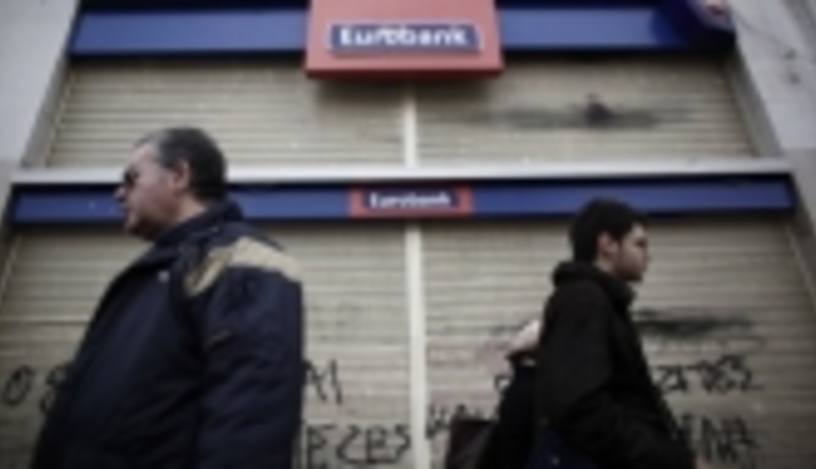When the limb is gangrenous, it is best to cut it off before it infects the entire body. That is the message EFG Group sent out with the decision to sell its 43.6% stake in Greek subsidiary Eurobank Ergasias to the National Bank of Greece (NBG).
This deal came to fruition in early October, when nine dominant Eurobank shareholders announced they were accepting an offer from NBG for shares in the enlarged bank. "They disengaged Eurobank and its negative Greek newsflow from EFG Group, to protect its Swiss private bank, EFG International," says Alex Kyrtsis, UBS European banks specialist.
While the extraction of the poisonous limb from EFG Group comes to fruition, EFG International is engaged in doing some of its own surgery, a move offering greater prospects of a return. The launch of an initial public offering (IPO) of its structured products subsidiary EFG FP in the Swiss market in mid-October was greeted positively by investors. It will bring some SFr330m ($355m) into EFG International’s balance sheet, and strengthen its Tier 1 capital. Credit Suisse was the sole global coordinator. According to one banker close to the deal, it shows that EFG Group now aims to focus purely on private banking.
There were two stages to the sale of the Eurobank stake. It began earlier in 2012, when EFG Group, a financial vehicle of the Latsis family, whose fortune was made in shipping, announced that their near 44% holding in the bank would be transferred from EFG Group to the group’s nine family members as individuals.
The move was seen by local analysts as an effort to avoid contagion to the private bank, although sources close to the bank insist that the stake in Eurobank was owned by the private family business EFG Group, while EFG International is a publicly quoted company that the family merely controls. The separation was indicated by the removal of the name ‘EFG’ from EFG Eurobank’s formal title.
Tempting offer
In early October, NBG came to the Latsis family shareholders with an offer of 11% in the enlarged bank, which they accepted. Altogether, Eurobank’s former shareholders will have 25% of the enlarged bank, while NBG will keep a controlling 75%, a reflection of the two banks’ capitalisations. "It seems there was little negotiation. The deal was based on the market value exchange ratio on the day before the deal was announced," says Mr Kyrtsis.
Pressure from the European group of finance ministers to consolidate Greece’s banking system was a key element in the timing of the offer. Eurobank was the lone large Greek bank remaining without a substantial partner. Another analyst says: "Both NBG and EFG Group were under great political pressure to come to a deal. There was no scope for negotiation."
The family still managed to extract some value from the deal, says Giovanni Carriere, Greek banking analyst at independent capital markets research firm Autonomous Research. By way of comparison, Crédit Agricole sold its Greek subsidiary, Emporiki, to Alpha Bank in the same month for just €1.
"Eurobank was no longer viable on its own, and this is a good way for [EFG shareholders] to exit and make some cash," says Mr Carriere. "They can still get a decent price when this thing was worth zero. There are pressures from all sides to do the deal. No one in Greece is in control of their destiny anymore. The new combined bank has a better chance to compete in the new environment. [The shareholders] are getting paid in shares and are getting a stake in the new bank."
The Latsis family’s 11% stake in the enlarged bank is shortly to be further diluted to no more than 1% as the Greek state will make a capital infusion of some €15bn. Both NBG and Eurobank have negative equity and are, in the words of one analyst, "effectively bust" without government support.
New start
The IPO of EFG International's structured products division represents another break with the EFG past. EFG International, which owns 58% of EFG FP, had acquired its structured products team at the time the bank diversified out of pure private banking during the early and mid-2000s. Sources at EFG International say the bank has invested heavily in an advanced IT platform which leads that of larger banks. Its ‘white-labelling' facility "offers particular promise and is not built into the price", says one banker away from the deal.
"We have made a strategic decision to get back to what we do best, which is private banking. We’ve drawn a line under some missteps relating to the hedge fund world. We have had to incur losses," says an EFG executive.
EFG International’s most high-profile misstep was the acquisition of hedge fund Marble Bar Asset Management in 2007 for $517m. One insider at EFG International says the bank lost some $800m from redemptions at Marble Bar before the bank finally severed its link with the hedge fund in March 2012. "We probably paid too high a price and were being too ambitious for a bank of our size," says the insider. By dealing with the legacy of its past mistakes, EFG hopes to cut a way through to a more focused future.












